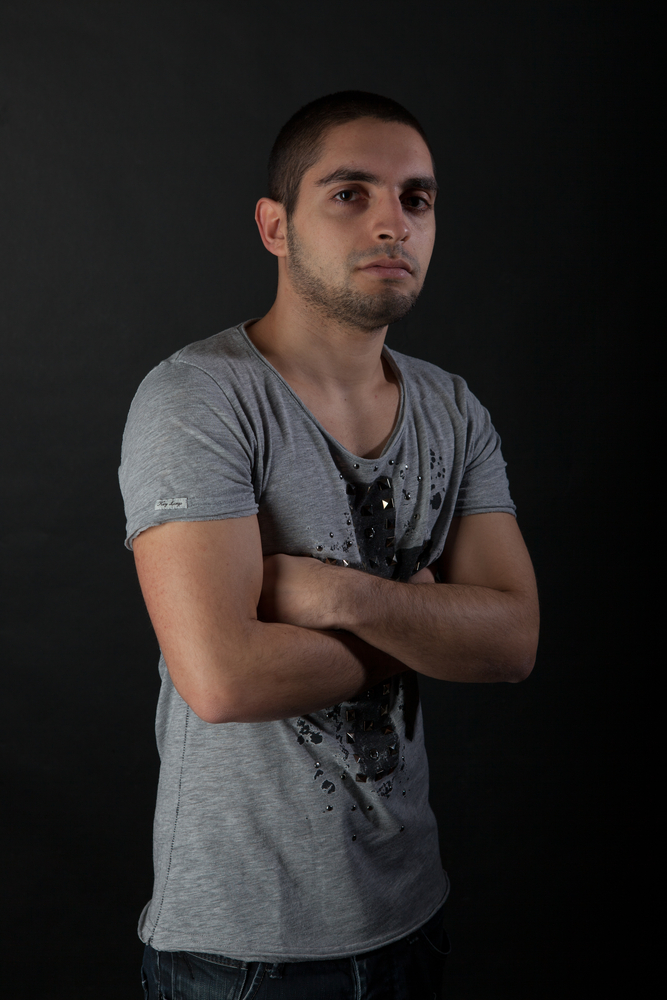
What is your identity? Are you just a name? A member of a family? A citizen of a country?
We might give different answers in different contexts, to the question, depending on who is asking “Who are you”? To a certain extent, our identity flows out of our lived experiences.
I identify as a son, a member of a larger family with ancestors who settled in Naperville, IL after emigrating from the Alsace region of France/Germany. I identify as a father and a husband. I identify as the son of a father, who is a lawyer, and I identify as a lawyer myself.
I also identify as a born-again Christian, oen who was once lost and is now found, a follower of Jesus Christ in the process of being renewed in my mind conformed to the image of God.
How we identify ourselves in an ultimate sense reflects our core values and what is ultimately most important to us. Thus, if someone is asking me about my highest identity, or the basis of all identities, or what is my central identify out of which all other identities now flow, I would say I identity as a child of God and follower of Jesus.
Such is the effect of being born again: born into the family of God – born of the Spirit. (John 3:7-8) It means that we now cry to God, “Abba! Father!” Romans 8:15) “Because you are his sons, God sent the Spirit of his Son into our hearts, the Spirit who calls out, ‘Abba, Father.’” (Gal. 4:6)
Our identity as children of God flows out of our experience of being born again. This identity is first and foremost. It is the identity that qualifies all other identities.
Or, at least it should….
Other identities flow from being born again. We no longer identify as being of the world, though we continue to live in the world. (John 17:16) We identify as citizens of heaven (Phil. 3:20), and we identify as “aliens and strangers” in this world. (1 Pet. 2:11)

We know these things, but we might ask, “How much has this identify taken ahold of me?” And, “How much do I identify as a child of God, a citizen of heaven, no longer of this world, but an alien and stranger here?”
“Is this my experience? Do I live this out as my fundamental identity?”
The pull of the world is great. I have to be honest, myself: I experience long stretches of time in which I could not say with integrity that I am living as an alien and stranger in this world. I find myself identifying more closely than I should, perhaps, with things of this world. My experience doesn’t always reveal close alignment with my citizenship in heaven.
The following story really brought the reality of the effect of experience on personal identity home to me. It showed me that how we identify at the core of our being is tied into lived experience, and our lived experience reveals our hearts.
The story comes from a legal aid clinic I run one Saturday morning a month. Many of the people we serve are immigrants, and some do not speak English well. Thus, we need interpreters to bridge the language gap.
One Saturday, a young woman from a local college showed up to help. I will call her Selena. She was a pre-law student who found out about us from a local congressional representative. She speaks Spanish, so she was a welcome addition to our group of volunteers.
I had the opportunity to get to know Selena a little bit because we had plenty of help that Saturday. She graduated from a local high school in three years with a perfect GPA, and she was on schedule to graduate from college in three years with a perfect GPA. Her plan was to go to law school, and the legal aid clinic would be good experience for her. She was quiet, but confident in her direction.

While most college students try to squeeze every once they can out of freedom from their parents and to minimize their responsibility before entering “the real world”, this young woman was driven by bigger and more important things.
It wasn’t long before I discovered her motivation which flowed out of her lived experience.
Selena opened up about her life as we talked. She was a Dreamer. She was from a foreign country where she was born. Her parents came here when she was still a baby. She grew up in the United States, and she doesn’t even remember the country she came from.
Being a Dreamer means that Selena is “undocumented”. She is an illegal alien. Her parents, too are illegal aliens.
Selena’s brother, however, was born in the United States. He is the only one in the family considered legal because he was born here. More on that in a minute.

From the time Salena was old enough to understand her status, she lived under a cloud of concern that she or her parents could be deported at any time. It became her core identity, her lived experience, an identity always conscious and subconsciously with her.
This awareness influenced Selena always to be good, always, knowing that any wrong move might bring the wrong kind of attention on her and her family that would spell disaster. Her friends were few. She quietly went about her business, pouring herself into schoolwork, knowing that her only hope was to gain the best education she could and stay out of trouble.
Selena knew from a young age that no grant money and no aid would be available to her. She knew she wouldn’t qualify for subsidized student loans. If she was going to go to college, she would have to earn scholarships by her hard work and and pay for whatever scholarship money did not cover herself.
Selena’s parents lived out the same experience she did. They used to travel back and forth freely across the border, but then things changed. Border control tightened in the wake of 9/11. They were caught on this side of the border with a baby and impossible choices to make.
Days turned to weeks, and weeks turned to months. Months turned to years, They put their heads down, stayed out of trouble and worked hard, hoping for some change that would part the dark cloud above their heads and let the sun shine in.
Selena must have learned her work ethic from her father. He went into business for himself. He developed several businesses. He helped other people establish their own businesses. He paid taxes faithfully, though he knew he may never benefit from all the money paid into the treasury and Social Security of this country of which he is not a citizen and not even a legal alien.
Selena and her parents have lived out the experience of being aliens and strangers in a foreign land. That experience makes up their core identity.
Selena’s life ambition grew out of her experience: to become an attorney and to work to make life better for immigrants in the United States, to provide an easier and more forgiving path to citizenship for people like her and her family.
In the process of talking about her drive to make a difference, Selena made an off hand remark about her brother. He didn’t have the same drive or ambition. Immigration issues didn’t move with him as they did her.
His experience and his identity were different than hers. She didn’t say it, but it dawned on me that Selena’s brother didn’t embrace the passion she did because his experience was different than hers. He didn’t experience the weight of being an illegal alien. He wasn’t a Dreamer. It wasn’t part of his identity.
Immediately, a light bulb went on in my head. I thought of the people of Israel who were aliens and strangers in Egypt, who wandered 40 years as sojourners in the wilderness. God often reminded them they were strangers in the earth. (Lev. 25:23) He reminds us that we are aliens and strangers here as well. (1 Peter 2:11)
I thought of God telling Israel that they should care for aliens and strangers in their midst because the people of Israel were strangers in the land of Egypt. (Ex. 22:21; Lev. 19:34; Deut. 10:19).

I thought of Abraham who “made his home in the promised land like a stranger in a foreign country; [living] in tents, as did Isaac and Jacob, who were heirs with him of the same promise.”. (Heb. 11:9) Why?
Because “he was looking forward to the city with foundations, whose architect and builder is God.” (Heb. 11:10)
In fact, all the examples of faith listed in Hebrews 11 lived as “foreigners and strangers on earth” (Heb. 11:13) because “they were looking for a better country – a heavenly one”. (Heb. 11:14)
It dawned on me that if we don’t identify that way, we aren’t living by faith. If we don’t identify as aliens and strangers in this world, we also have a hard time identifying with people in this world who literally do live as aliens and strangers.
Just as God had to remind the Israelites that they were aliens and strangers in Egypt – and even still in this life – to show them how to treat the aliens and strangers in their midst, we need to be reminded of our status as citizens of heaven, if indeed we are citizens of heaven.
I believe that we in the church would rise up in compassionate response to the immigration crisis in the US if we understood and embraced our own status as citizens of heaven and aliens and strangers in this world. If we identified and lived out our faith as did the litany of people in Hebrews 11, we might see immigration issues differently than we do.
But the pull of our actual experience and the worldly influence on our core identity is great. If we don’t identify as citizens of heaven, we won’t live that way. I can see how the experience of being “law abiding citizens” with nothing to fear from harsh immigration laws might color how we view undocumented aliens. Even in Selena’s own family, difference in identity led to a difference in lived experience and a difference in views of the world.
It’s harder to empathize with something when it is foreign to our own identity and lived experience. If we truly identify as aliens and strangers in this world, and that is part of our lived experience, it changes us. It informs who we are and what we care about. I am convinced that our identity and lived experience as aliens and strangers in the world should make a difference on how we view immigrants, even undocumented ones.

Good post, and good illustration about the Dreamer you met. I hope and I pray that she succeeds in her quest. And we grew up nearly as neighbors–you in Naperville, me in Winfield. J.
LikeLike
This is such a tough issue… I believe in being a nation of laws, but I also agree with everything you say. There has to be a way to make a path to citizenship for people who want to be here and work hard and not be career criminals, but any such proposal is going to be politically unpopular with both sides of extremists.
LikeLike
there was a time when people just showed up on our shores and we took them in. The family in the story in the article crossed the border liberally during a time when border control didn’t even require passports. Our laws have changed over time. In relatively recent years, they became much tougher, some would say draconian. From a biblical perspective, I believe, God would want our laws to be compassionate and favor welcoming the stranger in. That’s the point of the parable of the sheep and the goats. “When did we see you as a stranger and welcome you in?” Our laws don’t do that now, and I think God’s justice demands that we change them (if we want to do what is right and just). I think we also have to remember, always, that none of us get what we deserve. We have all broken the law and fallen short of keeping it. We don’t deserve the unmerited mercy we have received in Christ. I think that this should color how we approach the immigration issue as well. I can almost hear God saying to us, as He said to the Israelites, “Remember you (your ancestors) were immigrants who came to these shores once to escape harsh realities, to worship in freedom and make a better life for their children. Treat the immigrant the way you would treat your own family.”
LikeLiked by 1 person